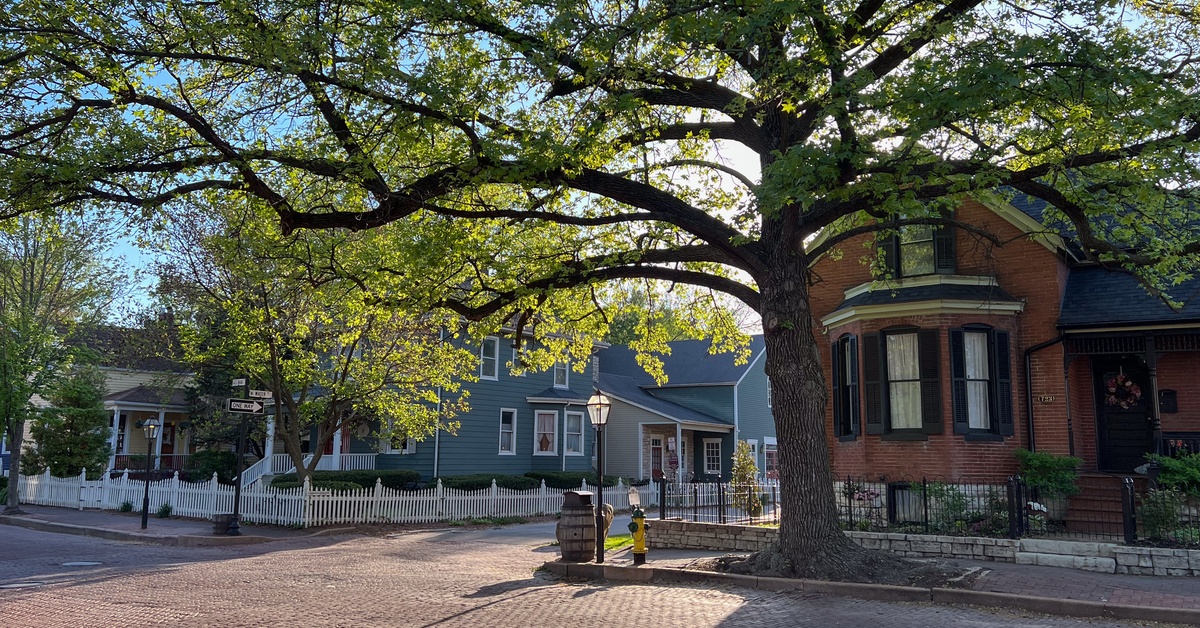Pros and Cons of Investing in Missouri Land
October 17, 2025 1:44 pm PST

Investing in land can be a significant financial decision. Missouri, with its diverse landscapes and growing economy, presents a unique set of opportunities and challenges for potential buyers. Understanding both the advantages and disadvantages is crucial before committing to a purchase. Exploring the pros and cons can help you determine if buying land in the Show-Me State aligns with your investment goals.
This overview provides a look at the pros and cons of investing in Missouri land. From its affordable prices and agricultural potential to considerations like property taxes and market fluctuations, we will cover the essential factors you need to weigh. This guide will equip you with the knowledge to make an informed and confident decision.
Pro: Low Cost of Living and Affordable Land Prices
One of the most significant advantages of investing in Missouri is its affordability. The state consistently ranks as one of the most budget-friendly places to live in the United States. This low cost of living extends to its real estate market, where land prices are often considerably lower than the national average. For investors, this means your capital can go further, allowing you to purchase larger tracts of land or acquire property in desirable areas without overextending your finances. The accessibility of affordable land opens doors for a wider range of investors, from first-time buyers to seasoned developers.
Con: Variable Economic Growth Across Regions
While Missouri's overall economy shows stability, its growth is not uniform across the state. Major metropolitan areas like St. Louis and Kansas City experience robust economic expansion, which often drives up land values and demand. In contrast, many rural areas may see slower growth or even economic stagnation. This disparity means that the investment potential of a property can heavily depend on its location. Investors must carefully research regional economic trends to avoid purchasing land in an area with limited growth prospects, which could impact future resale value and development opportunities.

Pro: Strong Agricultural and Hunting Opportunities
Missouri's rich, fertile soil and favorable climate make it a prime location for agriculture. The state is a leading producer of soybeans, corn, and hay, offering significant opportunities for farming ventures. Whether you plan to cultivate crops or raise livestock, the land provides a solid foundation for agricultural productivity. Additionally, Missouri is a paradise for outdoor enthusiasts, offering abundant wildlife and excellent hunting conditions. Purchasing land for recreational purposes, such as establishing a private hunting ground, can provide personal enjoyment and a potential income stream from leasing to hunters.
Con: Higher-Than-Average Property Taxes
Potential investors should be aware that Missouri's property taxes can be higher than in many other states. While land prices may be low, the ongoing cost of property taxes can add a significant expense over the lifetime of your investment. These taxes fund essential local services like schools, infrastructure, and public safety, but they can eat into your returns. Before purchasing, you should investigate the specific property tax rates for the county where the land is located and factor these recurring costs into your overall budget and financial projections.
Pro: Diverse Geography Offers Various Land Types
Missouri's landscape is incredibly diverse, offering a wide array of land types to suit different investment goals. You can find everything from rolling hills and dense forests in the Ozarks to flat, fertile plains in the northern part of the state. This variety allows investors to choose a property that perfectly matches their vision.
Some of your options include:
- Farmland: Ideal for crop cultivation and livestock.
- Timberland: Suitable for logging and recreational use.
- Waterfront properties: Perfect for building a vacation home near a lake or river.
- Undeveloped lots: Great for residential or commercial development.
This geographical diversity enhances the state's appeal and provides flexibility for investors with specific needs.
Con: Susceptibility to Natural Disasters
Missouri's location in the central United States makes it vulnerable to certain natural disasters. The state is part of "Tornado Alley," with a high frequency of severe thunderstorms and tornadoes, particularly during the spring and summer months. Flooding is also a concern, especially for properties near major rivers like the Missouri River and the Mississippi River. These environmental risks can lead to property damage and increased insurance costs. Prospective buyers should thoroughly research the flood and tornado risk for any property they consider and ensure they have adequate insurance coverage.
Pro: Strategic Central Location and Infrastructure
Positioned in the heart of the country, Missouri boasts a strategic location with excellent transportation infrastructure. The state is crisscrossed by major interstate highways, including I-70 and I-44, making it a key hub for logistics and distribution. Its central location facilitates easy access to markets across the nation. This connectivity is a major plus for commercial and industrial development, as it simplifies the movement of goods and materials. For individual landowners, this infrastructure ensures convenient travel to and from their property.
Con: Zoning Regulations Can Be Restrictive
Like any state, Missouri has zoning laws and land-use regulations that impact how you can develop and use your property. These rules vary significantly by county and municipality, and some can be quite restrictive. Before you find your ideal Missouri land for sale, it is essential to conduct due diligence on local zoning ordinances. Restrictions could limit the types of structures you can build, dictate minimum lot sizes, or prohibit certain commercial activities. Navigating these regulations can sometimes be complex and may require professional assistance to ensure your plans comply with local laws.

Pro: Growing Interest in Rural and Recreational Land
There is a growing trend of people seeking to escape urban life for the peace and quiet of the countryside. This has fueled demand for rural and recreational land in Missouri. Properties that offer natural beauty, privacy, and outdoor activities are becoming increasingly popular for second homes, weekend getaways, and retirement spots. This trend can increase the value of rural land over time, making it a solid long-term investment. Investors who purchase recreational land can benefit from both personal use and potential appreciation in value.
Con: Market Fluctuations and Resale Challenges
The real estate market is subject to fluctuations, and Missouri's land market is no exception. While some areas may see consistent growth, others can experience periods of stagnation. Selling a piece of land, particularly in a rural or less-developed area, can sometimes be a slow process. Unlike residential homes, which often have a broader pool of buyers, raw land can take longer to sell. Investors should prepare for the possibility that it may take time to find the right buyer and achieve their desired sale price, requiring patience and a long-term investment horizon.
Your Next Steps in Land Investment
Investing in Missouri land offers a compelling mix of affordability, agricultural potential, and diverse opportunities. The state’s low land prices and central location make it an attractive option for a variety of buyers. However, it is important to weigh these benefits against potential drawbacks like variable economic growth, property taxes, and environmental risks.
By carefully researching specific locations, understanding local regulations, and having a clear investment strategy, you can navigate these challenges effectively. A well-informed approach will help you capitalize on the many advantages that land in Missouri has to offer and make a land investment that aligns with your financial future.


